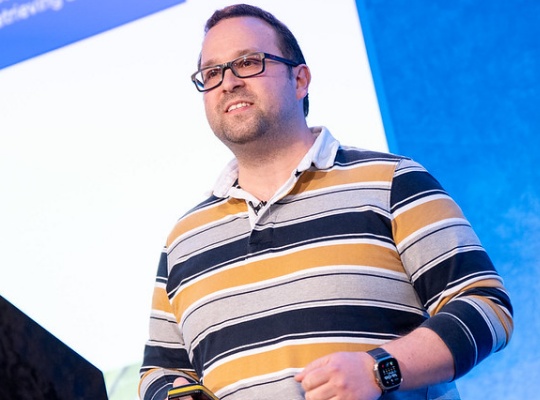Codetown
Codetown ::: a software developer's community
Setup project for multiple developers
Replies to This Discussion
-
Permalink Reply by Thomas Michaud on April 9, 2010 at 10:27am
-
Short Answer - Use Maven2 and Subversion (SVN).
Long Answer -
I recommend you use a Source Code Control program such as Subversion. All of your developers need to check code into and out of this.
Configure the subversion project with Maven2 (you could use Ant) to build a single war file.
Finally: You need to state to your developers you want a single WAR file for deployment. (And your developers should have already asked you how you want this deployed. Exploded WAR vs. Single (or multiple) WAR files. -
-
Permalink Reply by Jackie Gleason on April 9, 2010 at 11:22am
-
I agree with the previous poster except for one thing, I would add Hudson to the mix. Hudson is a very powerful tool that you can use to fire off whatever building you want to do using maven. So the steps would go something like this...
1.) User checks code into Subversion
2.) Hudson Recognizes the new commit and uses maven to build/run tests
3.) Hudson can then automatically deploy to whatever environment.
Of course you should also set up multiple environments so that commits are not automatically deployed to prod.
Long story short, research Maven, Subversion, and Hudson. -
-
Permalink Reply by Zemian Deng on April 9, 2010 at 1:35pm
-
These are basic infrastructure question, and I would suggest you re-use what's in your team's best talents first. Check with your team lead for his expertise in these area first. Everyone will have their own preference, and they work most efficiently with their strong areas. If you already got a team of 6, one would need to make decision for these and lead others to follow. Let the lead do what he does best with. If he is not good at it, he probably shouldn't be the lead in the first place.
With that said, I personally prefer a java development with these tools:
* Source Control: Mecurial (hg)
* BuildTool: Maven2 + Nexus Repository Manager
* Editor/IDE: JEdit and Eclipse with M2Eclipse plugin
* Project Management/Issue Tracker: Jira or Bugzilla
* Wiki: Confluence or MoinMoin
* BuiltServer: Hudson
Good luck with your team.
/Z -
Notes
Welcome to Codetown!
 Codetown is a social network. It's got blogs, forums, groups, personal pages and more! You might think of Codetown as a funky camper van with lots of compartments for your stuff and a great multimedia system, too! Best of all, Codetown has room for all of your friends.
Codetown is a social network. It's got blogs, forums, groups, personal pages and more! You might think of Codetown as a funky camper van with lots of compartments for your stuff and a great multimedia system, too! Best of all, Codetown has room for all of your friends.
Created by Michael Levin Dec 18, 2008 at 6:56pm. Last updated by Michael Levin May 4, 2018.
Looking for Jobs or Staff?
Check out the Codetown Jobs group.
InfoQ Reading List
Argo CD 3.3 Brings Safer GitOps Deletions and Smoother Day‑to‑Day Operations

The application deployment and lifecycle management tool Argo CD has reached a new milestone with the release of version 3.3, extending the capabilities of the popular GitOps continuous delivery tool while addressing several long-standing pain points for operators.
By Matt SaundersMySQL 9.6 Changes Foreign Key Constraints and Cascade Handling

MySQL is changing the way foreign key constraints and cascades are managed. Starting with MySQL 9.6, foreign key validation and cascade actions are handled by the SQL layer rather than the InnoDB storage engine. This will improve change tracking, replication accuracy, and data consistency, making MySQL more reliable for CDC pipelines, mixed-database environments, and analytics workloads.
By Renato LosioVercel Releases React Best Practices Skill with 40+ Performance Rules for AI Agents

Vercel has launched "react-best-practices," an open-source repository featuring 40+ performance optimization rules for React and Next.js apps. Tailored for AI coding agents yet valuable for developers, it categorizes rules based on impact, assisting in enhancing performance, bundle size, and architectural decisions.
By Daniel CurtisKubernetes Introduces Node Readiness Controller to Improve Pod Scheduling Reliability

The Kubernetes project recently announced a new core controller called the Node Readiness Controller, designed to enhance scheduling reliability and cluster health by making the API server’s view of node readiness more accurate.
By Craig RisiPresentation: Platforms for Secure API Connectivity With Architecture as Code

Jim Gough discusses the transition from accidental architect to API program leader, explaining how to manage the complexity of secure API connectivity. He shares the Common Architecture Language Model (CALM), a framework designed to bridge the developer-security gap. By leveraging architecture patterns, engineering leaders can move from six-month review cycles to two-hour automated deployments.
By Jim Gough
© 2026 Created by Michael Levin.
Powered by
![]()